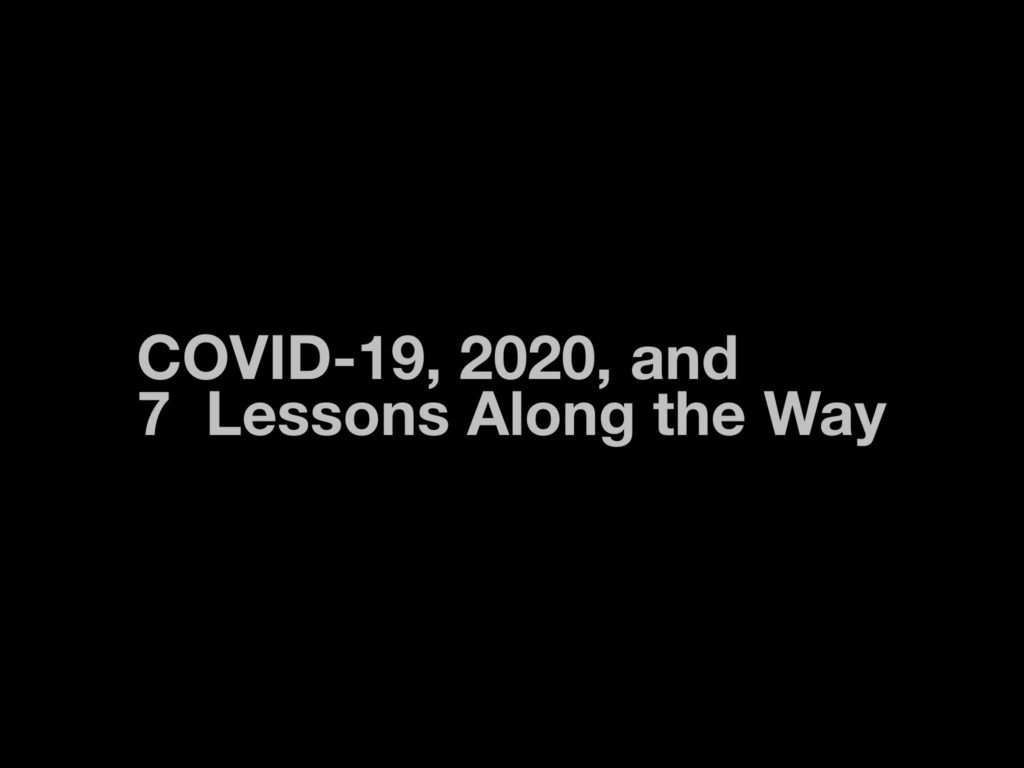In early March 2020, I was at a large conference in Orlando with thousands of other pastors learning, resting, and dreaming, and little did I know that would be the last time in 2020 I gathered with thousands of people in one room. We heard whispers of this thing called the coronavirus, we saw a few people in masks, but I had no idea what was about to ensue. Less than 15 days later, we had moved our services online, and a few days after, our city was locked down amidst the fears over a virus now called COVID-19. As I write this, we are starting month 7 of this nightmare, we have been slowly regathering as a church, and we are in the midst of social tension we have not experienced since the 1960s and ’70s in the United States. This week I wanted to document some of what I have learned from this season before we move too far away from the pressure of what shifted 2020 from “an exciting new decade” to a year of reckoning on so many levels.

I follow some incredible leaders that are church futurists like Carey Nieuwhof, Thom Rainer, and Dave Kinnaman. I’m not a futurist because I am in the trenches of pastoring, and if you are a pastor on staff at this moment, you know we are working as hard as ever to manage the moment. I want to list off things that I see in this moment, things COVID-19 and 2020 have revealed that need immediate attention. Here are a few lessons learned and things I am working on…
- Consumer & Casual Christianity is Collapsing. // Every pastor knows casual or consumer Christianity has been a real issue in the church. COVID-19 is forcing so many people in our congregation to evaluate if they have a faith that is sustainable in a real crisis. The reality is that many of our attenders are just consumers of a cultural version of following Jesus, where people show up once a month for a spiritual pep talk. During a pandemic, you need more. Before the pandemic, people needed more, but they settled for a half baked version of Jesus shaped in their image. Coming out of this pandemic, we have to pray that we have the endurance to lead our congregations to something more deeply connected to the self-sacrifice, love, and character of Jesus.
- Our Online Experience Matters Deeply. // When COVID-19 shut everything down, we shifted to an at-home experience rather than a recreation of church online. Worship at home looks differently than just filming a church service in the building. It’s different because when you worship at home, you are in a different space. I will share how we are doing our online experience next week in a church under 200 but know that the online experience is here to stay and incredibly important in the years to come. Online groups are not going away. Online worship is not going away.
- Adaptability and Flexibility are not Optional. // In times of crisis, the organizations that endure are the ones that get creative and adapt. Flexibility is the secret ingredient to help people endure in times of trouble because flexibility allows us to keep the mission in focus. We had already baked flexibility into the DNA of our church before the pandemic, and it served us well. All pastoral leaders must push the areas of the church they lead and the people they serve to be flexible or move on to a church where not being flexible and being rigid is the norm.
- Racism, Injustice, and Oppression…the Church Has to Repent, Listen, and Work. // The pandemic gave people time to slow down, and in May, we once again heard clearly the voices of black and brown people asking for change. This season has caused me to process these issues in a way I have not in the past. I am repenting of not paying more attention to many issues in our nation. I am listening more than ever. I am working for progress and praying for improvement. I am helping my church members think more like Jesus than their political party.
- Our Gatherings are Important and also Need to Change. // I will never again take the physical gatherings of the church for granted. The gathered Body of Christ is powerful and needed. I also know that most churches have a formula for how they run their services. We are trying to change that and make each gathering as led by the Holy Spirit as possible in our church context. We want to be open that Sundays can be days where we go off script and lead people to pursue Jesus in different ways as we gather.
- Marriage and Emotional Health Can’t be Ignored Anymore. // We saw tons of marital conflict exposed by the pandemic. We saw people struggle with emotional health as they endured a challenge like none other. The church can be a voice for emotional and marital health. Pastors, we have to lead the way in our lives, modeling this work. Your marital and emotional health set the tone for the church, you shepherd. Make it a priority.
- The Church Can’t be Stopped. // I have been so proud of the churches in our city fighting together to advance the Kingdom in a pandemic. I have immense hope for the church because I know for sure that it’s so much bigger than our buildings or budgets. The Kingdom can’t be stopped.
